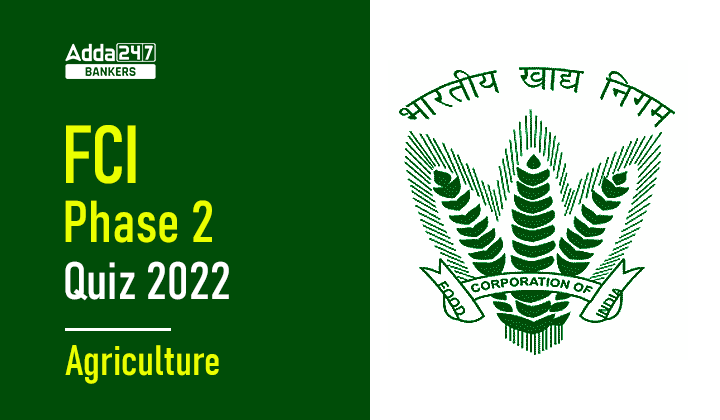Q1. Within how many days after receiving a reply on the First Appeal, a Second Appeal can be filed?
(a) 90 days
(b) 2 months
(c) 30 days
(d) 45 days
Q2. The RTI application is addressed to______.
(a) Chief Minister of the respective state
(b) Prime Minister of India
(c) President of India
(d) Public Information Officer
Q3. Right to Information Act, 2005 came into force on which of the following date?
(a) 22 June 2005
(b) 12 October 2005
(c) 15 June 2005
(d) 15 August 2005
Q4. The Right to Information Act, 2005 replaced which Act?
(a) Information Technology Act, 2000
(b) Freedom of Information Act, 2002
(c) Delamination Act, 2002
(d) None of the above
Q5. Who can file an RTI?
(a) Only Indian Nationals
(b) Only Foreign Nationals
(c) Both A and B
(d) None of the above
Q6. What is the fee paid by an Indian National to file a First Appeal?
(a) Rs. 10
(b) Rs. 50
(c) Rs. 20
(d) None of the above
Q7. What are the age criteria to file an RTI application?
(a) 18 years and above
(b) 45 years and above
(c) 16 years and above
(d) No age bars
Q8. Who is the Chief Information Commissioner (CIC) of India?
(a) Sudhir Bhargava
(b) Yashvardhan Kumar Sinha
(c) Radha Krishna Mathur
(d) Bimal Julka
Q9. The Preamble to the RTI Act states that informed citizenry and transparency of information is vital to_________.
(a) Eradicate Corruption
(b) Promote Corruption
(c) Contain Corruption
(d) Measure Corruption
Q10- Consider the following statements related to the RTI Act, 2005.
i) No court shall entertain any suit, application or other proceedings in respect of any order made under this Act.
ii) No such order shall be called in question otherwise than by way of an appeal under this Act.
iii) Democracy requires an informed citizenry and transparency of information which are vital to its functioning and also to contain corruption and to hold Governments and their instrumentalities accountable to the governed.
Which of the above statement(s) is true?
(a) Only (i)
(b) Only (ii)
(c) Only (i) and (ii)
(d) All of them
Solutions
S1. Ans(a)
Sol. A Second Appeal can be filed before the Information Commission within ninety days of receiving a reply on the First Appeal.
S2. Ans(d)
Sol. The RTI Application is addressed to the Central or State Public Information Officer. The name and the complete address of the office along with the subject line ‘Seeking information under the RTI Act, 2005′ should be clearly mentioned on the application.
S3. Ans(b)
Sol. The Right to Information Act, 2005 came into force on 12 October 2005. The Bill was passed by the Parliament of India on 15 June 2005 and received President’s Assent on 22 June 2005, thereby becoming an Act.
S4. Ans(b)
Sol. The Right to Information Act, 2005 replaced the Freedom of Information Act, 2002 to mandate timely reply to citizen appeals for government information.
S5. Ans(a)
Sol. Any Indian national can file an RTI application. The RTI Application can be filed online through this link– https://rtionline.gov.in/guidelines.php?appeal
S6. Ans(d)
Sol. An Indian National can file a First Appeal free of cost if the information is not received within 30 days or in case of unsatisfied information provided by the department. It is to be noted that a sum of Rs. 10 is to be paid by the applicant to file an RTI application.
S7. Ans(d)
Sol. Any Indian citizen can file the RTI application. There is no restriction of age limit.
S8. Ans(b)
Sol. Yashvardhan Kumar Sinha is the current Chief Information Commissioner (CIC) of India since 7 November 2020. He succeeded Bimal Julka who served briefly on the post (19 February 2020 to 31 October 2020). Sudhir Bhargava served as CIC from 1 January 2019 to 11 January 2020. He succeeded Radha Krishna Mathur.
S9. Ans(c)
Sol. The Preamble to the RTI Act states that informed citizenry and transparency of information is vital to contain corruption.
S10. Ans(d)
Sol. As per Section 23 of the RTI Act, no court shall entertain any suit, application or other proceedings in respect of any order made under this Act and no such order shall be called in question otherwise than by way of an appeal under this Act.
The Preamble to the RTI Act states that democracy requires an informed citizenry and transparency of information which are vital to its functioning and also to contain corruption and to hold Governments and their instrumentalities accountable to the governed.



 GA Capsule for SBI Clerk Mains 2025, Dow...
GA Capsule for SBI Clerk Mains 2025, Dow...
 The Hindu Review October 2022: Download ...
The Hindu Review October 2022: Download ...
 Bank of Baroda LBO Recruitment 2025 Noti...
Bank of Baroda LBO Recruitment 2025 Noti...


